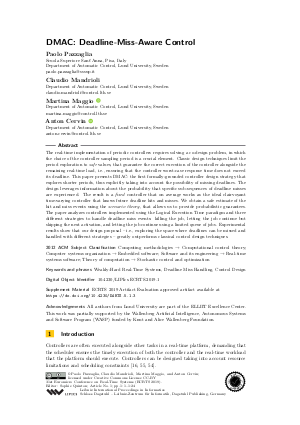LIPIcs.ECRTS.2019.1.pdf
- Filesize: 0.65 MB
- 24 pages

 Creative Commons Attribution 3.0 Unported license
Creative Commons Attribution 3.0 Unported license

























































Feedback for Dagstuhl Publishing